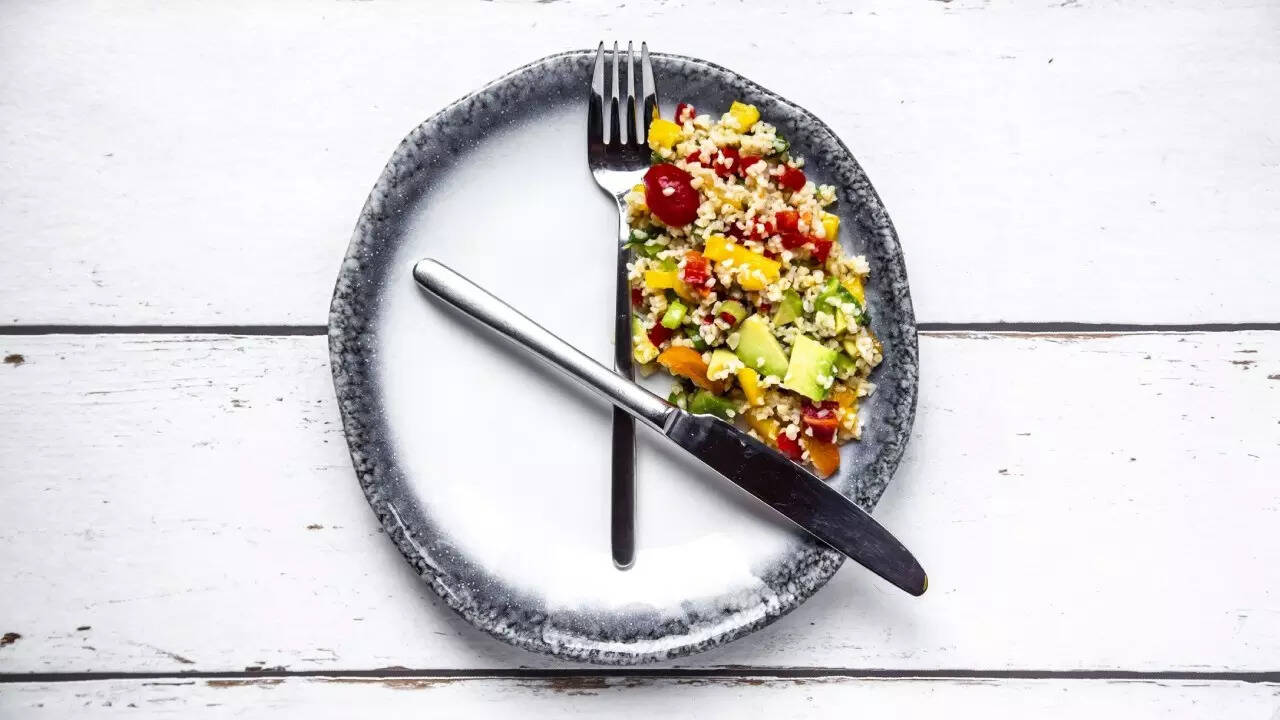Weight loss is not a cake walk. From diet to workout, a lot goes into getting to your goals. But you must have come across hundreds of social media posts that claim people are undergoing drastic weight loss. Some lose 10 kilos in a month, while others drop 20 or 30 in a matter of months. If you are planning to lose a lot of weight in a short period of time, fitness coach Raj Ganpath says there are certain factors that you need to take into consideration. “If you want to lose 10 kilos in the next two to three months, you definitely need to hear these five things,” the coach says in a video shared on Instagram. Let’s take a look.
Huge calorie deficit

If you want to shed 10 kilos of fat, you have to create a calorie deficit of about 77,000. And when this goal has to be achieved in two months, which is 60 days, the calorie deficit is about 1,300 per day. “What does this mean? Let’s say you’re eating about 2,000 calories today and you’re not losing any weight. You need to reduce that by 1,300, which means you are only left with about 700 calories worth of food for you to eat. This is not easy, and it is not sustainable, or you’re going to have to really amp up the exercise, which is not easy either one way or the other,” the coach says. He explains that it’s tough, and one needs to be aware of it.
Muscle loss
Losing 1 or 1.5 kilos is considered rapid weight loss, the fitness coach says. This leads to the risk of losing muscle. “You will not be losing only fat. You will actually be losing a significant amount of muscle. In fact, about 30 to 50 percent of your weight loss will be muscle loss, and you have to be aware of this,” he adds. Losing muscle can lead to a decreased metabolism. This means it will become harder to lose weight and can contribute to weight regain. Losing muscle will also decrease strength, reduce physical function, and put you at an increased risk of falls, fatigue, and weakness. This will also interfere with your body’s ability to regulate blood sugar, thereby increasing the risk of insulin resistance.
It’s tough to gain the muscle back

Regaining the lost muscle could be tricky. Though 90 percent of the people who undergo rapid weight loss regain the weight in the next couple of years, they won’t regain the muscle. “When this happens, remember, you will not be gaining any of the muscle back. You will gain all the fat back and then some more. So, at the end of losing weight and gaining weight, you’re actually more fat and less muscle than when you started and that is not a good place to be,” he explains See more: Weight Loss Tips to Lose Inches of Stubborn Belly Fat in a Healthy Way
The pace matters
The fitness coach emphasizes that the time period you take to lose weight really matters. “These first three things I spoke about, they apply irrespective of how you lose the weight – whether you go through a crash diet, or do excessive exercise, or work with a coach or a program, or even take GLP-1 drugs like Ozempic or Monjaro,” he says. “Because these are a result of the rate of weight loss and not about how you lose the weight,” he clarifies.
Slow and steady wins the race

(Representational image)
The fitness coach suggests taking the slower route. If you are looking for sustainable weight loss, don’t rush it. “Lose your 10 kilos, but try to lose it over six to ten months. So, you only have to lose about one to one and a half kilos a month, which means a calorie deficit of about 250 to 400 per day. This is very sustainable, certainly doable in the long term,” he said. He also emphasized that the slower route also prevents muscle loss. “Because you’re taking your time. You will give your body time to adapt. You will give yourself time to build habits. So, chances of you gaining all the weight are also very low,” he said.











